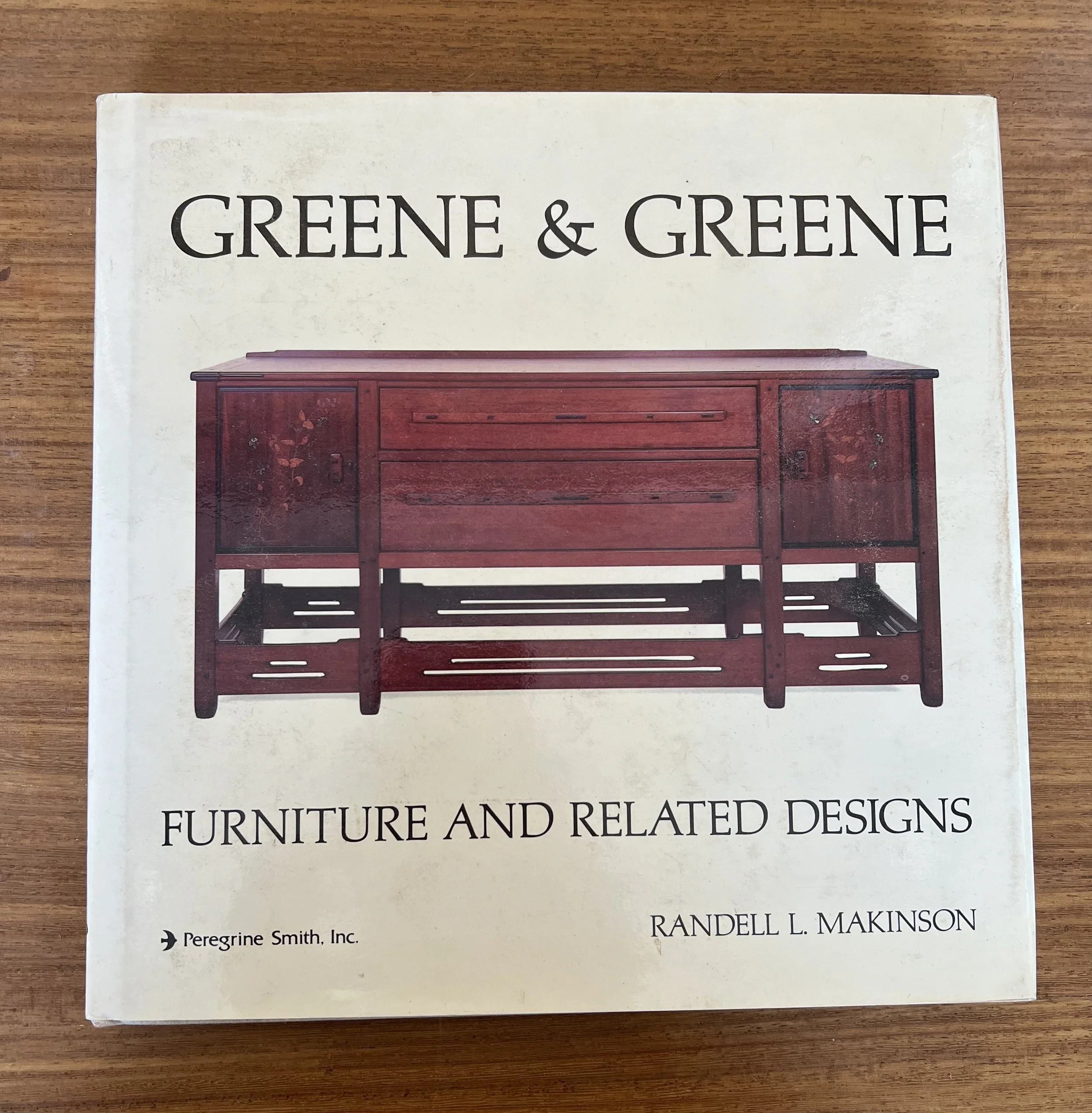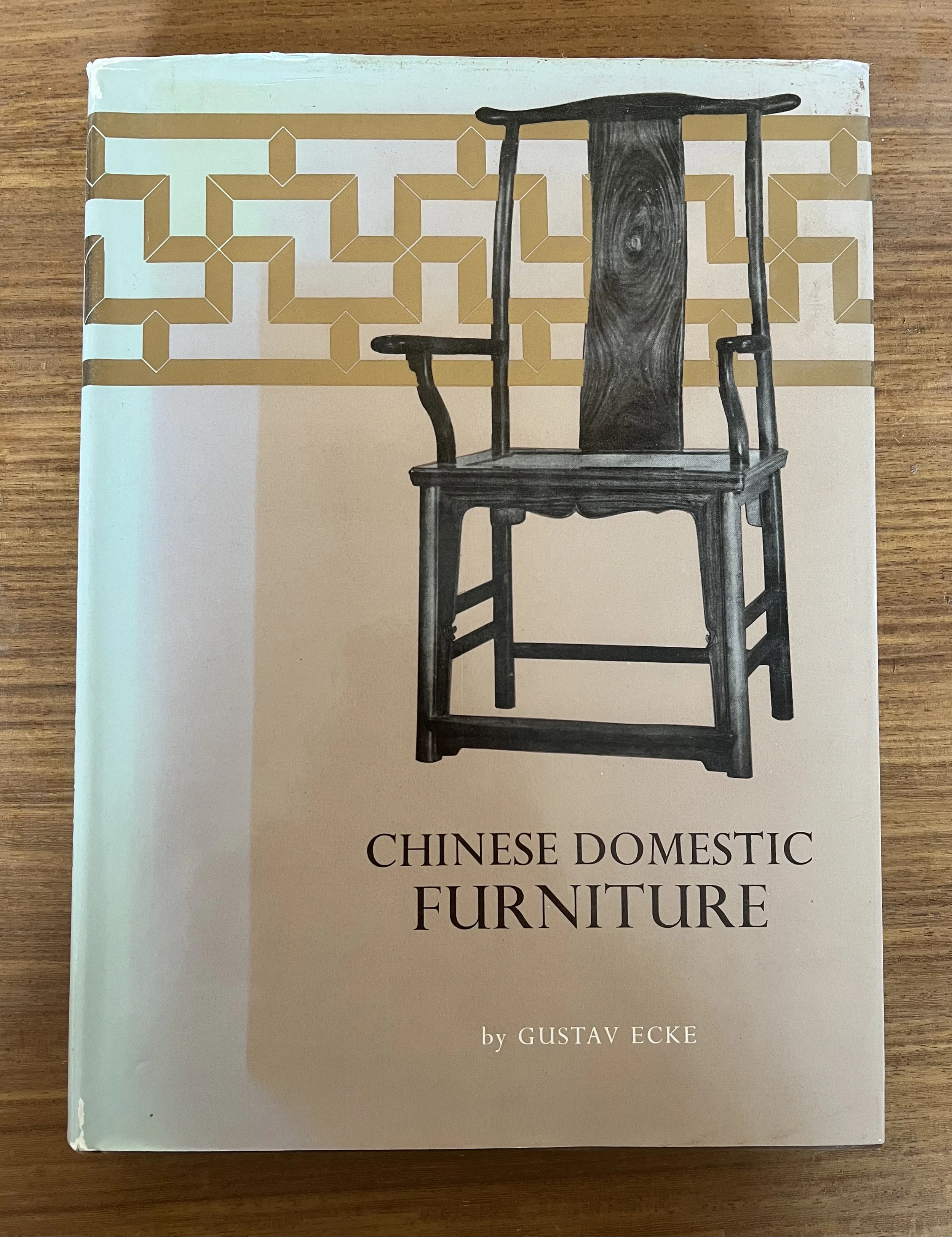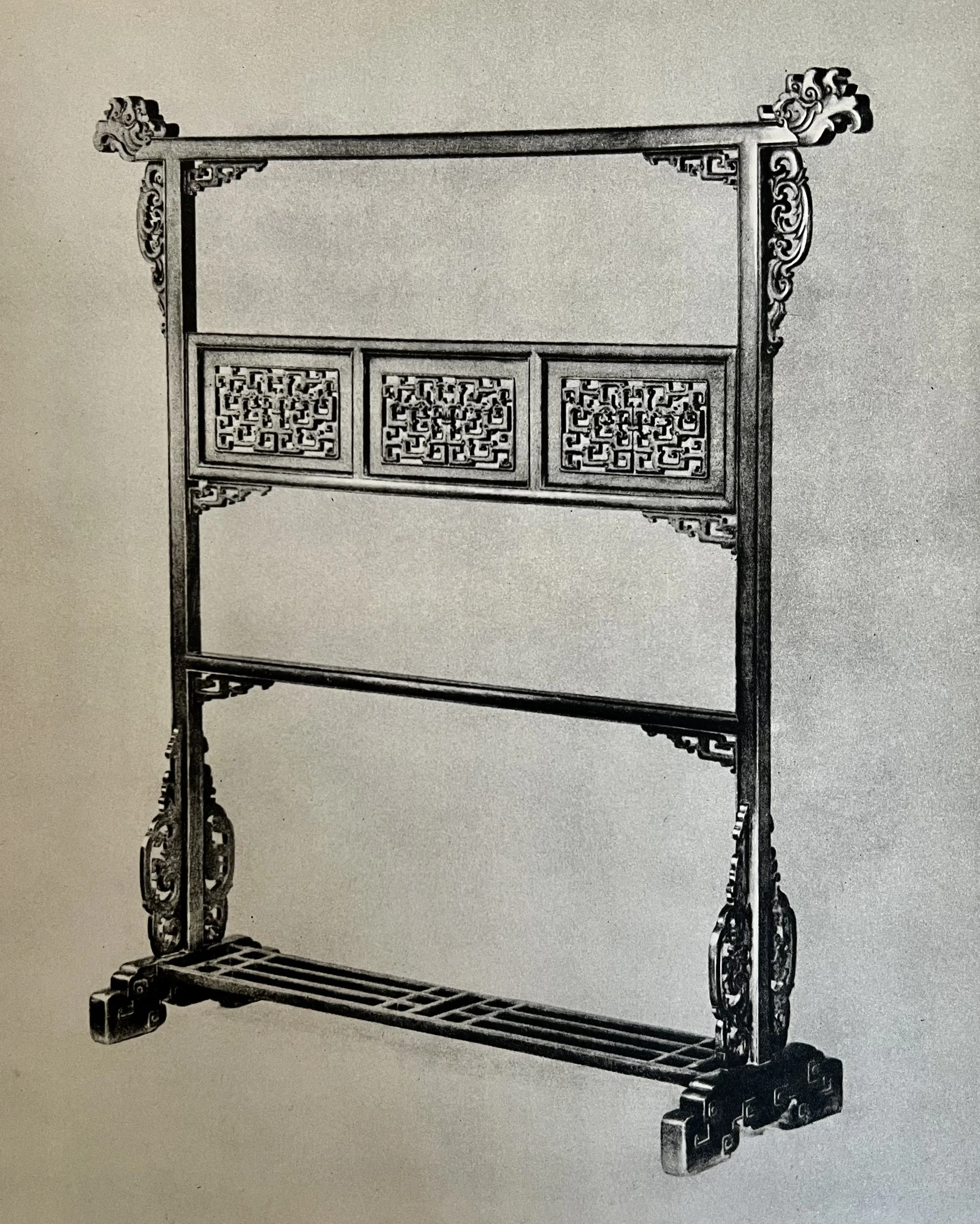Backyard Birds – Part 2
After I had a marquetry image in mind for my cabinet, my next step was to decide what the structure would look like. I knew that I wanted to use straight lines and right angles, so that the trompe-l'œil window on the marquetry panel would look more like it was part of a house. But beyond that, I wasn’t sure how my piece would look. So I looked through my dad’s collection of furniture and design books for ideas.
I found a lot of pieces that I liked in a book featuring designs from the Greene & Greene architecture firm. The Greene brothers were members of the Arts and Crafts movement of the 19th and early 20th centuries. One of their most well-known projects was the Gamble House in Pasadena, California.
I also found many wonderful pieces in a book of Chinese domestic furniture originally published in 1944. The book includes images of cabinets, chairs, and other types of furniture from many eras of Chinese history, some dating back many centuries.
My first sketches for my cabinet were all very top-heavy, and I wanted to put some kind of decoration near the floor. I found this piece in the Chinese Domestic Furniture book, and I decided to incorporate a grill-like structure, similar to the one at the bottom of this rack, on my cabinet. [Edit: See this post for how the grill turned out.]
The book didn’t include much information about the piece above, just referring to it as a “T’ang clothes rack in the Shosoin” and noting that it was made out of huanghuali and was part of the author’s collection. So, unfortunately, I can’t give credit to the artisan who made the piece.



